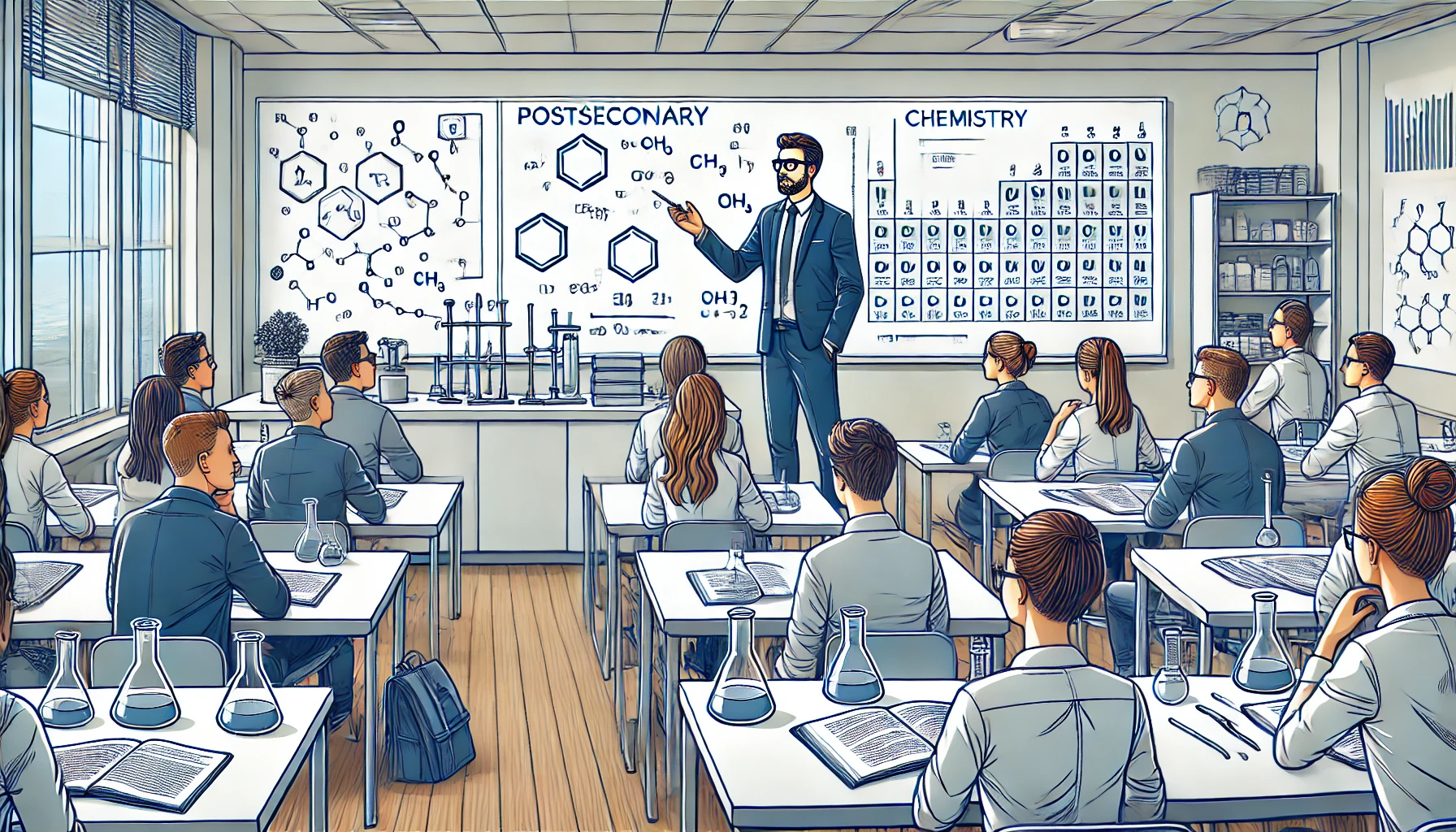Postsecondary Chemistry Teachers are educators who specialize in teaching chemistry at colleges and universities. They are responsible for delivering lectures, conducting laboratory sessions, and guiding students in their understanding of chemical principles and applications. These professionals play a vital role in shaping the next generation of scientists, researchers, and informed citizens by providing a comprehensive education in chemistry.

“Dedicated and knowledgeable Postsecondary Chemistry Teacher with [X years] of experience in higher education. Proficient in delivering engaging lectures and laboratory sessions, mentoring students, and conducting research. Committed to fostering a positive learning environment and contributing to the academic community.”
Answer: "I have always been passionate about chemistry and its applications in the real world. During my own education, I was inspired by my professors who made complex concepts accessible and engaging. I wanted to have a similar impact on students, helping them to appreciate the beauty of chemistry and its relevance to everyday life."
Answer: "I believe in using a variety of teaching methods to cater to different learning styles. I incorporate hands-on experiments, real-world applications, and interactive discussions to make the material more relatable. Additionally, I encourage questions and create a supportive environment where students feel comfortable expressing their difficulties."
Answer: "When developing a curriculum, I start by aligning the course objectives with the overall program goals and industry standards. I incorporate a mix of theoretical knowledge and practical applications, ensuring that students gain a comprehensive understanding of the subject. I also seek feedback from students and colleagues to continuously improve the curriculum."
Answer: "I use a combination of formative and summative assessments, including quizzes, exams, lab reports, and projects. I provide timely and constructive feedback, highlighting both strengths and areas for improvement. I also encourage self-assessment and peer reviews to foster a deeper understanding of the material."
Answer: "I regularly read scientific journals, attend conferences, and participate in professional development workshops. I also collaborate with colleagues in research projects and engage with online communities to exchange ideas and stay informed about the latest advancements in chemistry."
Answer: "I integrate my research into the curriculum by using it as a case study or example in lectures. I also encourage students to participate in research projects, providing them with opportunities to apply their knowledge and develop critical thinking skills. This hands-on experience is invaluable for their academic and professional growth."
Answer: "I establish clear expectations and guidelines at the beginning of the course. I promote respect and collaboration among students and address any disruptive behavior promptly and fairly. I also create an inclusive environment where all students feel valued and encouraged to participate."
Answer: "In my previous position, I initiated a 'Chemistry in the Community' project where students conducted experiments related to local environmental issues. They presented their findings to the community, which not only enhanced their understanding of chemistry but also fostered a sense of responsibility and engagement with real-world problems."
Answer: "Time management is key. I prioritize my tasks and set specific goals for each week. I allocate dedicated time for teaching preparation, research, and administrative responsibilities. I also seek to integrate my teaching and research whenever possible, such as involving students in my research projects."
Answer: "I believe that passion for the subject and a genuine interest in student success are the most important qualities. A successful chemistry teacher must be able to inspire and motivate students, making the subject matter engaging and relevant while fostering a supportive learning environment."